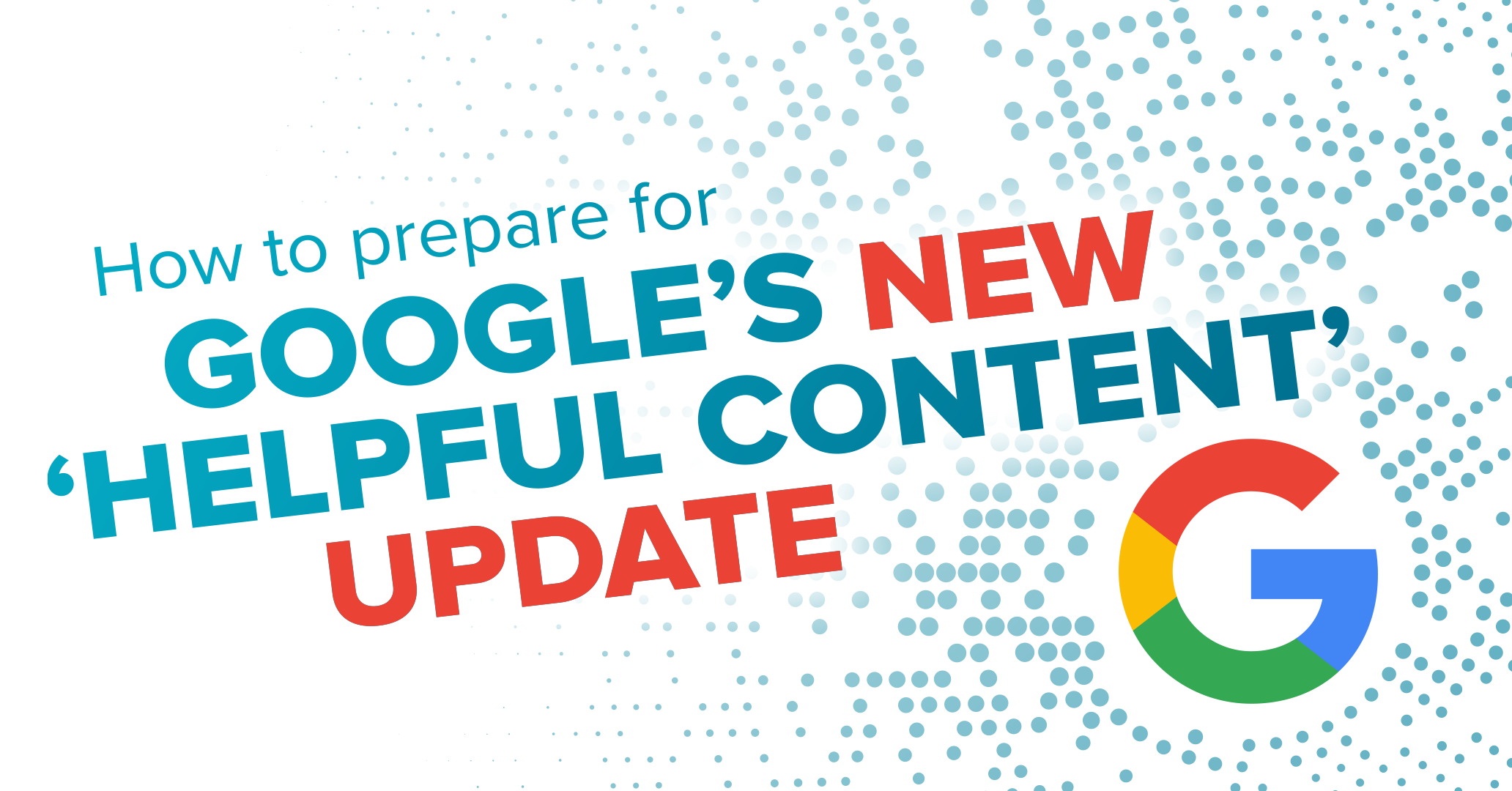As of next week, Google is rolling out the ‘helpful content update‘ aimed at rewarding websites producing content that provides users with a satisfying experience over those creating content aimed at search engines (e.g. thin content stuffed full of keywords).
In their ongoing quest to better connect people with helpful information, this new update is part of their effort to ensure people see more original, helpful content that’s written by humans for humans.
So if you’re a website owner regularly producing content, you need to carefully consider how your web pages and blog posts satisfy this new quest for ‘human first’ quality.
Anything that isn’t deemed ‘people-friendly’ is very likely to start falling in the search results as more original and helpful content is displayed first.
How to create ‘human-first’ content
To prepare for the new update, Google has shared these questions to help you analyse existing content.
- Do you have an existing or intended audience for your business or site that would find the content useful if they came directly to you?
- Does your content clearly demonstrate first-hand expertise and a depth of knowledge (for example, expertise that comes from having actually used a product or service, or visiting a place)?
- Does your site have a primary purpose or focus?
- After reading your content, will someone leave feeling they’ve learned enough about a topic to help achieve their goal?
- Will someone reading your content leave feeling like they’ve had a satisfying experience?
- Are you keeping in mind our guidance for core updates and for product reviews?
If you can answer yes to these questions in relation to your content then you’re on a strong footing for the new update.
How to avoid search engine first content
When creating new content, Google shared a list of questions to ask to avoid producing search-engine first content.
- Is the content primarily to attract people from search engines, rather than made for humans?
- Are you producing lots of content on different topics in hopes that some of it might perform well in search results?
- Are you using extensive automation to produce content on many topics?
- Are you mainly summarising what others have to say without adding much value?
- Are you writing about things simply because they seem trending and not because you’d write about them otherwise for your existing audience?
- Does your content leave readers feeling like they need to search again to get better information from other sources?
- Are you writing to a particular word count because you’ve heard or read that Google has a preferred word count? (No, we don’t).
- Did you decide to enter some niche topic area without any real expertise, but instead mainly because you thought you’d get search traffic?
- Does your content promise to answer a question that actually has no answer, such as suggesting there’s a release date for a product, movie, or TV show when one isn’t confirmed?
If you can answer yes to any of these questions, it’s back to the drawing board to adapt it for human consumption.
Should you need a bit of help with auditing existing content or producing new content that meets Google ‘human first’ guidelines and SEO best practice, please drop us a line.


